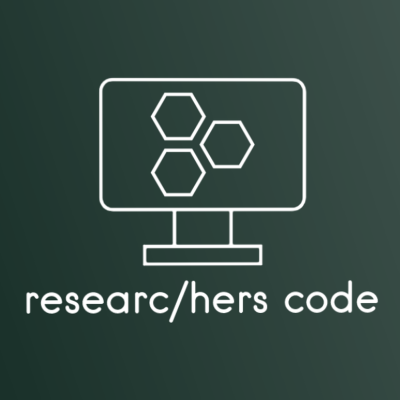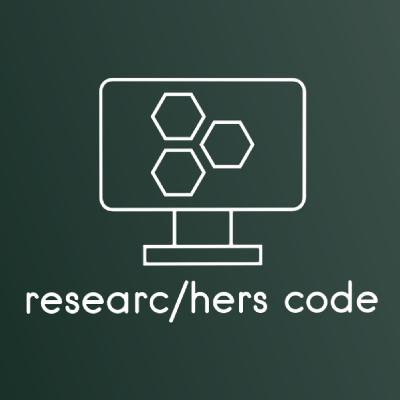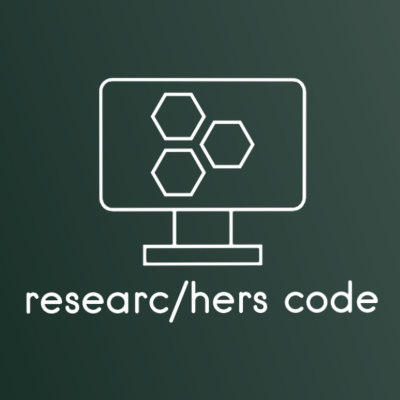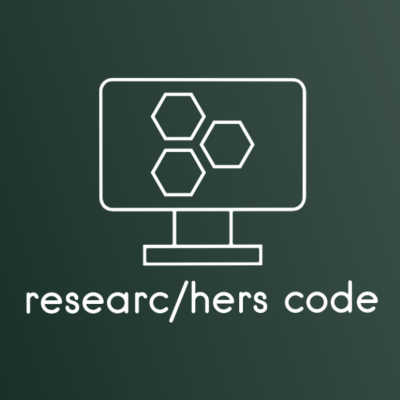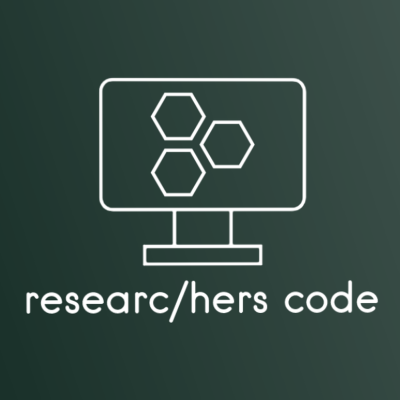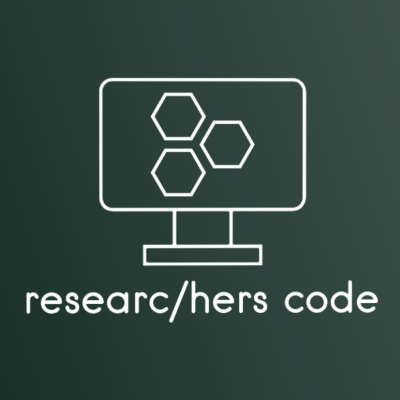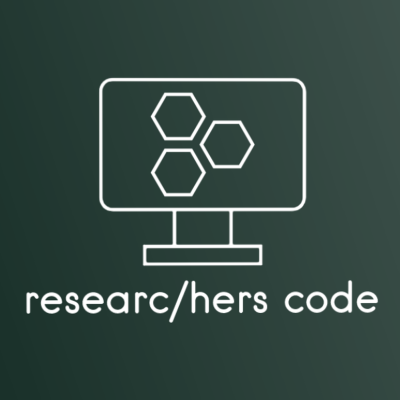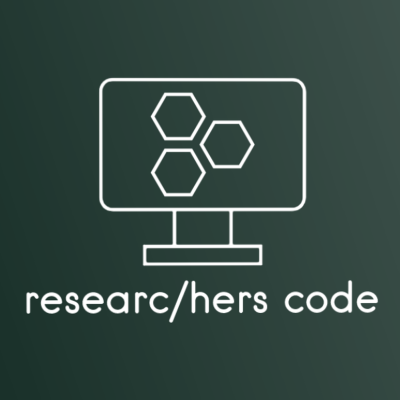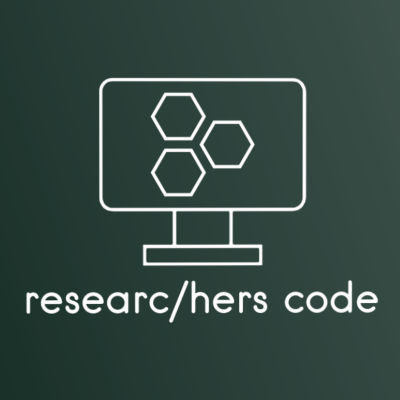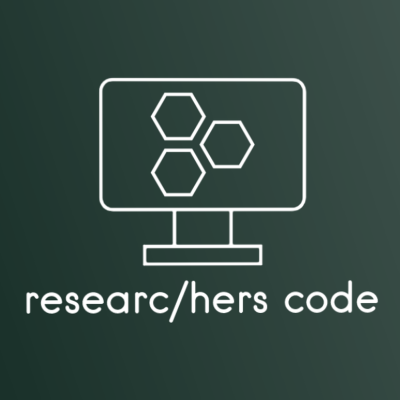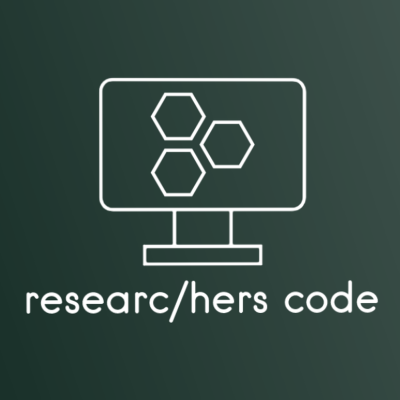Discover ResearcHers Code
ResearcHers Code

ResearcHers Code
Author: ResearcHers Code
Subscribed: 8Played: 57Subscribe
Share
© ResearcHers Code
Description
Two star-struck students interview pioneering women who code and use technology to solve the biggest problems in research. They share their stories and advice of breaking into and succeeding in the male-dominated field of tech.
16 Episodes
Reverse
In this episode, we talk to Dr Emma Hodcroft on her research in tracking the evolution of the new coronavirus, SARS-Cov-2, and her journey into computer science and bioinformatics. Emma is a post-doctoral researcher at the University of Basel and co-developer for the Nextstrain project. She is an expert in phylogenetics and has previously worked on HIV, plant and fruit fly genetics. Read more about Emma's research: http://emmahodcroft.com and https://twitter.com/firefoxx66
We talk to Alexandra Lautarescu about open science, what makes good science, and what we can do as researchers and funders to promote and practise open science.
Alex is a doctoral researcher at King's College London working on fetal and neonatal brain development. You can read more about her research and outreach at https://www.alautarescu.com and follow her on twitter @AleLautarescu
If you are interested in the articles mentioned in this episode go to www.researcherscode.com/episode-10
What is imposter syndrome? Do you feel like an "imposter"? How do we tackle imposter syndrome?
In this special episode, we talk to Professor Katherine Hawley, philospoher at the University of St. Andrews about imposter syndrome, why people get it, what we can do to support others with imposter syndrome and how we can tackle it as a society in the workplace and beyond.
As well as Imposter Syndrome, Katherine also researches on Trust. You can read her work here: https://katherinehawley.org/
ResearcHers Code has teamed up with Vicki Tipton from KCL Careers to bring you Part 2 of two episodes interviewing women who moved from the academia into the tech industry. Listen to Part 1 -> https://www.researcherscode.com/episode-7 Listen to Part 2 -> https://www.researcherscode.com/episode-8
ResearcHers Code has teamed up with Vicki Tipton from KCL Careers to bring you the first part of two episodes interviewing women who moved from the academia into the tech industry. Join us in the new year for the 2nd part of this conversation. Listen to Part 1 -> https://www.researcherscode.com/episode-7
We chat to Dr Katie Seaborn, a postdoctoral scientist at the RIKEN Centre for Advanced Intelligence Project in Tokyo. Katie is currently researching into how elderly people interact and have conversations with robots that help prevent the onset of dementia. Katie is an expert in designing interactive games and user experience. Growing up, she enjoyed drawing and illustration, but once the internet took off she discovered her love of digital design.
We chat to Dr Flora Tasse, Head of Artificial Intelligence and Augmented Reality at Streem. She completed a PhD in computer science at the University of Cambridge and was also founder and CEO of Selerio, a start-up in augmented reality.
It started when Flora watched Jurassic Park when she was eight. Amazed by the realistic nature of the computer-generated dinosaurs, Flora decided she wanted to work in computer graphics. By eleven, she was already programming a PC in Visual Basic.
We talk to Dr Ilana Wisby, CEO of Oxford Quantum Circuits, a spin-out company from the University of Oxford building and designing quantum computers. Ilana's path to the quantum realm was not exactly linear. As an accomplished pianist and flautist, Ilana had aspirations to study music but decided to study a Physics undergraduate degree with a Minor in Music at Royal Holloway University. She then pursued a PhD in Quantum Physics and subsequently landed herself working in the start-up world.
We interview Dr Emma Byrne, science communicator and author of "Swearing Is Good For You: The Amazing Science of Bad Language". Emma has a PhD in AI and was a researcher in Computational Neuroscience.
If you are curious about the science of swearing, parallels between a PhD and parenting, combinatorial explosions, evolutionary computation, bias in AI, how you break into science communication, how to write a non-fiction book and everything else, then you're in for a treat.
On this episode, we talk to inventor Dr Tempest Van Schaik, a Machine Learning Engineer at Microsoft. She is currently working on Project Fizzyo with University College London and Great Ormand Street Hospital helping children with Cystic Fibrosis.
Tempest is a "full-stack" aficionado with expertise from designing agricultural soil testing kits in small start-ups to data science applications for healthcare in big tech companies. When she's not busy building the future, she creates art and illustration.
We interview Dr Caroline Morton, a GP Registrar based in East London, who is also teaching programming courses to medical and biomedical students at Imperial College London. We chat about why coding is important in medicine, how the NHS is embracing digitisation and tips for teaching coding to beginners. Caroline also shares resources throughout this episode on learning to code which can be found on researcherscode.com/episode-1
We interview Dr Kerstin Haase, postdoctoral researcher at the Francis Crick Institute in London, on using computer science to track mutations in cancer genomes.
We interview Dr Chanuki Seresinhe, data scientist at the Alan Turing Institute, specialising in using big online datasets and deep learning to understand how the aesthetics of the environment affects human well-being.
We talk to Professor Marika Taylor, Professor in Theoretical Physics and Head of Applied Mathematics at the University of Southampton, and Research Fellow at the Turing Institute.
Marika talks about her PhD on the theory of black holes at the University of Cambridge with the eminent, late physicist, Professor Stephen Hawking. Her major work focusses on using the holographic principle to explain quantum effects in black holes.
We chat to Dr Raia Hadsell, a senior research scientist working on deep learning at Google DeepMind. After completing an undergraduate degree in religion and philosophy, Raia decided to pursue research in artificial intelligence - similarly intellectually challenging and thought-provoking, but more concrete in method. Since then, she has forged a successful career in artificial intelligence, pushing the boundaries of knowledge in AI navigation and deep learning algorithms.
In this first episode, we speak to Dr Milena Tsvetkova, a computational social scientist and Assistant Professor at the London School of Economics. Milena talks about her research in modelling diversity in society and social interactions online, and the importance of teaching computer science at university.


